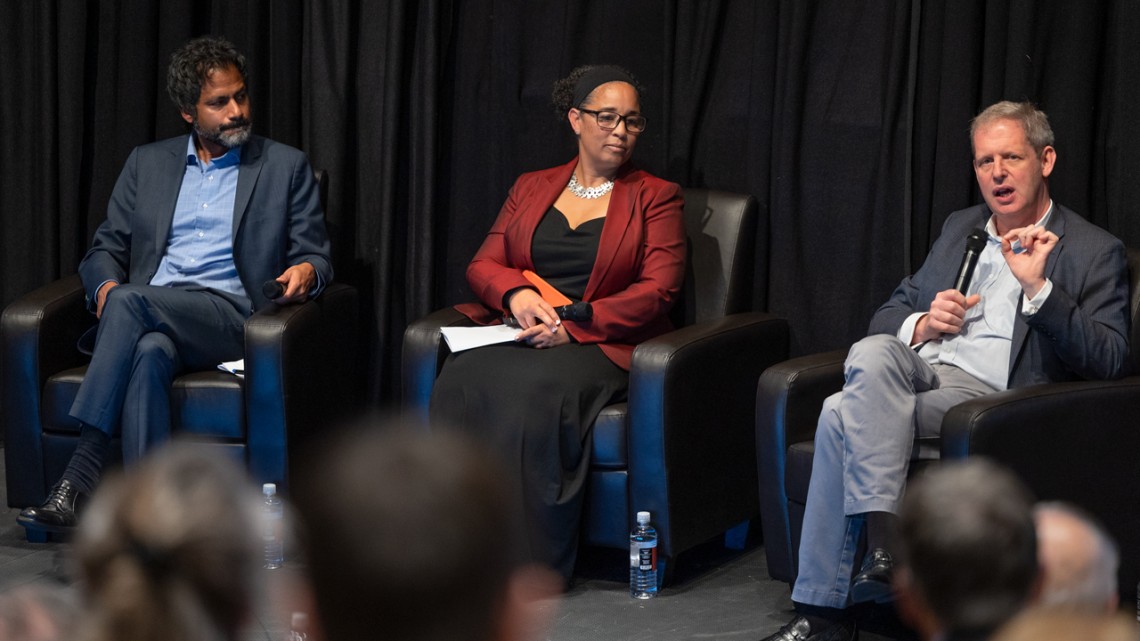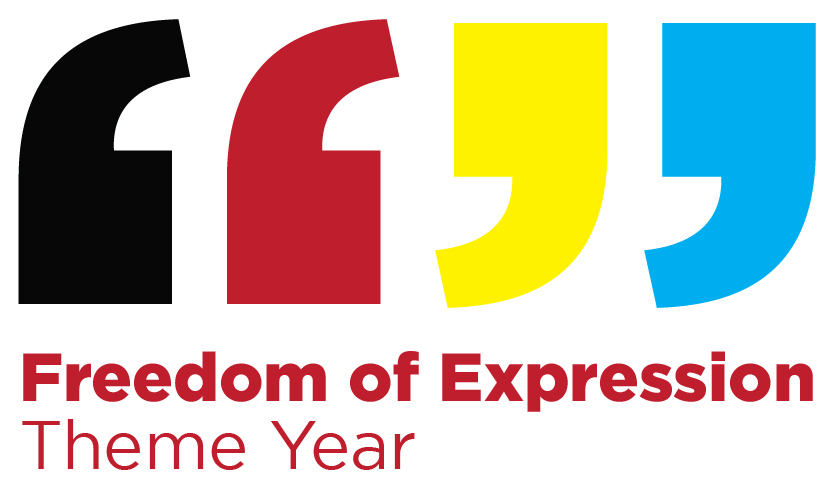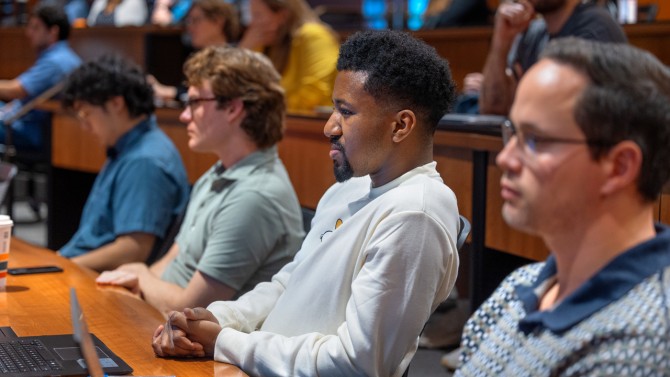
Jameel Jaffer of the Knight First Amendment Institute at Columbia University (left), Dean of Faculty Eve De Rosa and Eugene Volokh of the UCLA School of Law participate in the inaugural Milstein Symposium on Sept. 26 in Myron Taylor Hall.
Symposium addresses complexity of free expression, law
By David Nutt, Cornell Chronicle
What does academic freedom mean in light of the First Amendment? What, if any, are the conflicts between free speech and equality? Who should have the final say on what can and can’t be taught in the classroom?
Like many matters in life and law, it depends on the context.
Take, for example, the case of public university professors.
“The case law is quite complicated there because, among other things, public university professors are, after all, government employees at a government-run institution, teaching often a captive audience of government-supplied students,” said Eugene Volokh, the Gary T. Schwartz Distinguished Professor of Law at the UCLA School of Law. “I think the precedents are quite clear broadly protecting free speech, but when it gets to be especially speech within the classroom in a public university, the law is mushier, it’s vaguer. And I think for understandable reasons.”
Leading First Amendment scholars Volokh and Jameel Jaffer, executive director of the Knight First Amendment Institute at Columbia University and adjunct professor of law and journalism at Columbia Law School, discussed the scope and boundaries of freedom of expression for the first Milstein Symposium, held Sept. 26 in Myron Taylor Hall’s Landis Auditorium.
The event was the latest in a series addressing the university’s theme year, “The Indispensable Condition: Freedom of Expression at Cornell.” It featured a welcome from President Martha E. Pollack and an introduction from author and retired five-time Congressman Robert Mrazek ’67, who spoke on behalf of Howard P. Milstein ’73 and Abby S. Milstein, whose foundation sponsored the symposium.
“Clearly, freedom of expression is not a static concept,” said Dean of Faculty Eve De Rosa, who moderated the conversation. “It’s a dynamic force that evolves and continues to be tested and aided, shaped by the changing landscapes, culture, politics and technology.”
De Rosa asked the speakers what academic freedom means to them and if they believe it’s currently threatened or widely respected.
“The core of academic freedom is really a question of whether the faculty feel totally free to study what they want to and to teach as they want to within disciplinary boundaries,” Jaffer said. “And if that’s the way you think about academic freedom, then I think, yes, academic freedom is under threat. I would say the most significant threat is from legislators in Texas and in Florida, which really have taken an aim at academic freedom and restricting teachers’ ability to teach history.”
Jaffer and Volokh noted that protections for academic freedom and free speech are different for faculty and students, for public and private institutions, and in the classroom versus in the community.
Volokh said that lower courts have almost uniformly rejected the right of teachers in elementary and secondary schools to decide what to teach in their classrooms if the material runs contrary to the views of school administrators.
“I think as a constitutional matter, the fact is somebody’s got to decide what is taught in public schools. … Now, it could be the teacher. It could be the principal. It could be the school board. It could be the state legislature,” he said. “But somebody has to make that decision. And I’m not sure what is a First Amendment reason, a federal constitutional reason, that decision should be made by the lowest level … as opposed to the directly elected officials who are kind of in charge of the whole system, or for that matter by the citizens through ballots.”
When it comes to finding ways to countering speech we find disagreeable, Jaffer advocated for engagement over restrictions.
“One of the reasons to engage other people’s bad ideas is that you might persuade them that their ideas are bad, right?” Jaffer said. “It’s a mistake to think that people can’t be persuaded. There’s all sorts of evidence that people are persuaded of things all the time. Most of the adults who today support gay marriage once probably used the word ‘gay’ as a slur. So there’s been a huge shift in public opinion on that issue. … And if you suppress contrary speech you disagree with rather than engage with it, you deprive yourself of that opportunity to learn.”
A recording of the event is available here.
Media Contact
Get Cornell news delivered right to your inbox.
Subscribe


